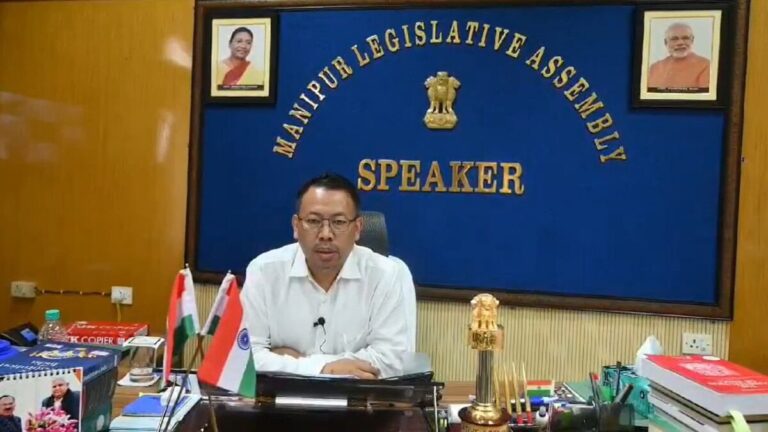Shutdown lifted after Rs 10L compensation in Manipur’s Churachandpur: Reports
Summary
A complete shutdown in Manipur’s Churachandpur and Kangpokpi districts, declared on June 19 in protest of the killing of tribal woman Hoikholhing Haokip, was lifted after authorities agreed to pay ₹10 lakh in compensation. The tribal forums called off the shutdown after Jammu & Kashmir Light Infantry formally acknowledged responsibility, performed local rites under tribal law, and delivered funds. Security forces have reinstated calm alongside tight measures to ensure the smooth movement of essential goods
Churachandpur Shutdown, Compensation, and What It Reveals About Tribal Justice in Manipur
1. A Collision of Customs and Crisis
Hey there! You ever wonder how a rural tribal community handles grief, anger, and demand for justice? When Hoikholhing Haokip—a tribal woman and wife of a village chief—was killed on June 19 during a security operation in Churachandpur, things escalated quickly .
Instead of relying on conventional legal routes, tribal bodies like the Indigenous Tribal Leaders’ Forum (ITLF) and the Committee on Tribal Unity (CoTU) swung into action—declaring an indefinite shutdown across Churachandpur and Kangpokpi. Schools locked their gates, shops shuttered, and major roads were blocked. Imagine that—an entire region grinding to a halt like someone hitting pause on the news feed.
2. What Does a Shutdown Really Look Like?
Let’s set the scene: it’s Friday, markets are closed, and buses aren’t moving. The ITLF, armed with sticks and resolve, lined the streets. Government offices saw sparse attendance. Schools? Closed. Rural life hit pause, and the infrastructure of everyday life teetered.
This wasn’t a small protest; it was a region-wide insistence that peace and justice can’t be taken lightly. Tribal communities were demanding:
- A meaningful admission of responsibility
- Healing through customary rituals
- Restorative—rather than punitive—justice
Because when hope dies, they say, a whole community often wears the mourning clothes too.
3. The Turning Point: ₹10 Lakh & Tribal Rites
By June 21, a breakthrough came—the state stepped in. The Deputy Commissioner, along with ITLF leaders representing Haokip’s family, hammered out a meaningful resolution
The Agreement included:
- ₹10 lakh compensation paid by the Jammu & Kashmir Light Infantry (JAKLI) under the 57 Mountain Division—acknowledging the act.
- A public admission of responsibility. JAKLI didn’t just send money; they acknowledged fault.
- Performance of “Hemkham”, a traditional tribal rite, and supplying ritual materials.
This isn’t mere symbolism—the Hemkham ceremony is as binding as court orders in tribal customary law. It offers the emotional and spiritual closure that formal legal systems often lack.
4. Why Tribal Justice Matters (a.k.a. Beyond the Money)
You might think ₹10 lakh could easily smooth over anger—but it’s deeper than that. Tribal justice is about restoring harmony, honor, and trust:
- Hemkham rituals heal collective grief
- Public admission restores moral equilibrium
- Money signifies tangible support, but rituals address the soul
Restorative practices like this aren’t outdated—they’re nuanced, healing, and community-centered. They don’t just punish; they aim to rebuild.
5. Security Backup & Normalcy Restoration
While tribal leaders negotiated, security forces didn’t stand idle. They reinforced patrols, especially near NH-37—vital for goods moving between Imphal and Silchar via Jiribam. Their goal? No second wave of disruption. By Sunday, 231 vehicles with essentials had passed safely—all thanks to strict oversight
FAQs
1. What triggered the shutdown in Churachandpur?
Tribal groups imposed an indefinite shutdown after security forces killed Hoikholhing Haokip—village-chief’s wife—during an operation on June 19
2. Who negotiated on behalf of the government?
The Deputy Commissioner of Churachandpur led talks alongside the Indigenous Tribal Leaders’ Forum (ITLF) representing the victim’s family
3. What is Hemkham?
It’s a traditional tribal ritual for reconciliation and collective healing—deeply rooted in Kuki customary law. Performed in this case with materials provided by military units.
4. Why ₹10 lakh?
The sum, while symbolic, also recognizes the seriousness of loss. It’s a blend of punishment and restitution within tribal and legal contexts.
5. Can similar solutions ease conflicts elsewhere?
Yes—but tribal law varies. Solutions that resonate with local values and culture, backed by state acknowledgment, are most effective.


